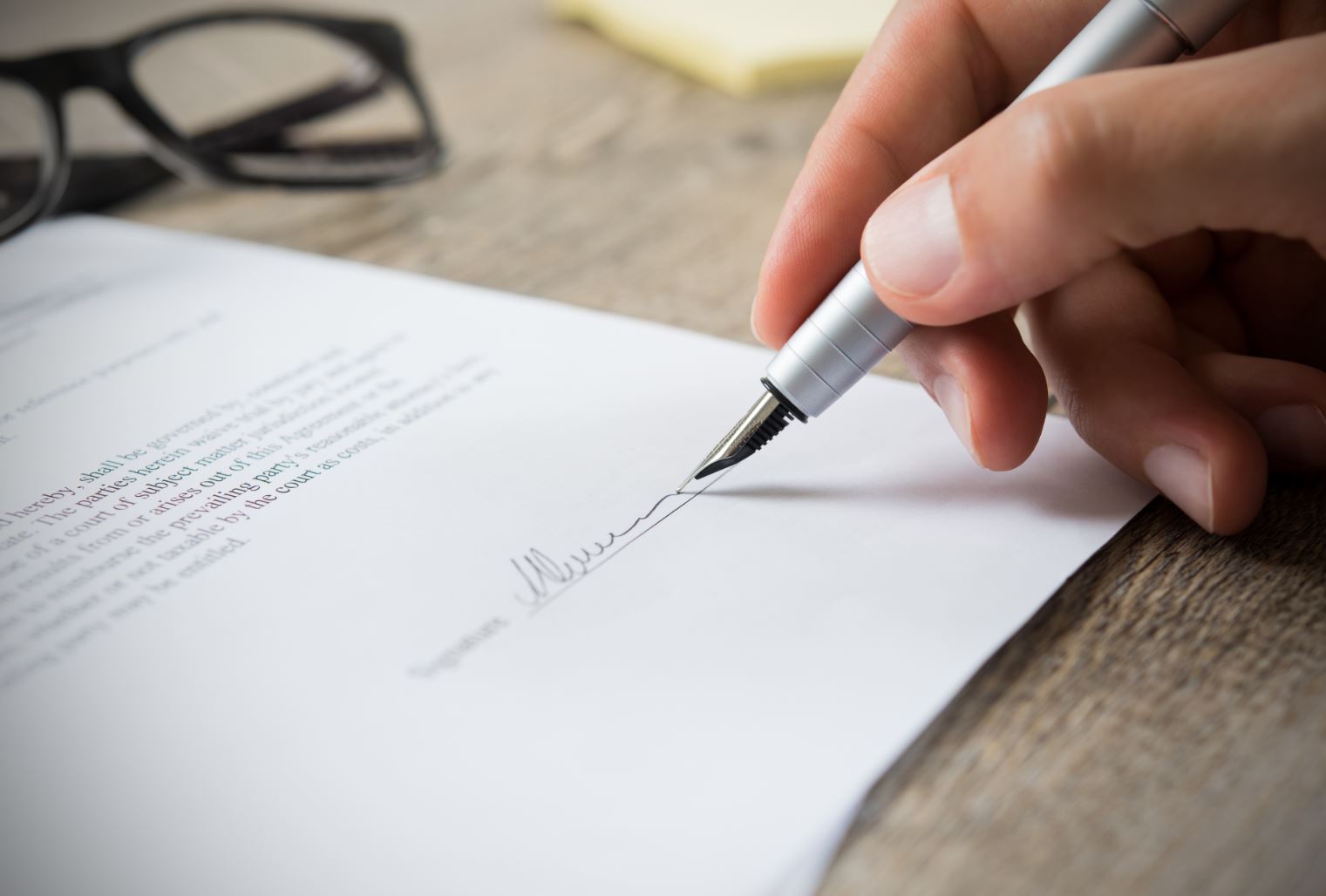Matthew Cameron from Ashton’s Legal explains the documents you’ll need and the contracts involved…
When we are advising clients on a French property purchase, a common starting point is to discuss which documents are to be completed during the process, and what paperwork may need to be provided in advance.
Especially common are questions about whether it really is necessary to produce a divorce decree absolute that has probably been in a box in the attic for 30 years, or why on earth one may need to produce a copy of a birth certificate: surely producing a passport is sufficient for identification purposes?
Even down to the papers needed in France, the process for buying a house across the Channel is quite different from England and Wales. There are, though, a number of similarities. By concentrating on the documents a buyer will encounter, we will look to highlight the procedure.
Official documents
To start with, it is usual to produce personal documentation such as birth and marriage certificates, and even proof of divorce from or death of a previous spouse. In France one is identified by personal history, as represented by a livret de famille or ‘family book’, but as such a single document does not exist in the UK, we have to produce each specific certificate whose contents would be reiterated in a livret de famille. In relation to the purchase itself, there are a number of documents to be produced. If your search is through an estate agency, you may be asked to sign a bon de visite each time you visit a property. This is to establish the agency through which you were first introduced to a particular property – several agents may well try to show you around the same house, but you should ensure you only end up paying one commission. Other than this, the bon de visite does not carry any legal weight. It does not, for example, constitute an offer, and should therefore be fine to sign one.
The different contracts
Once you have found the ideal property, an agent may invite you to sign an offre or propostion d’achat. This would contain the main parameters of the purchase: an identification of the parties, the property, the price and any other specific relevant clauses. If it is countersigned by the seller, this would technically constitute a binding contract – under French contract law rules, a contract is complete once the ‘thing’ and the price are agreed.
However the binding nature is only really effective on the seller, as the buyer still retains the right to withdraw at this stage. Again, therefore, there is little risk of causing oneself any major problems by signing an offer to purchase the property.
Once the offer has been accepted, the next stage will be for the initial contract – normally called a compromis de vente – to be drafted; there are other forms of contract, although we shall concentrate here on the main format. It can be prepared by the agent, although it is commonly now the notaire who will do this. The compromis should reflect the overall agreement between the parties. It will therefore need to define the parties, the extent of the property to be sold, and the price.

Diagnostic reports
In addition, the compromis will refer to the various pre-contract diagnostic inspection reports that will have been carried out. It is important to note that these reports are required to be produced by law, and their content is strictly controlled. They do not necessarily obviate the need for an independent survey to establish the overall solidity and integrity of the property. These inspections depend upon the age, location and type of property.
The need for a termite report in the south, and other areas, is commonly known. Termites are destructive insects and their presence can be hazardous, so treatment is critical.
Where a property was built in or before 1948 it may require an inspection of the paintwork to see if it contains lead paint, and, if so, whether at a concentration of more than 1mg/cm2.
Where a property was built before 1997, an asbestos inspection is required. If the gas and electrical installations are more than 15 years old, then they will be checked for anomalies.
There will also be other inspections, for example to cover drainage; any history of local natural risks; swimming pool protection; the internal size of an apartment and so on.
Not all of these will be relevant in each case, so it is important to understand which ones will be required. They can also have differing periods of validity, so the date they were carried out needs to be checked.

Contract conditions
The compromis will also be conditional upon a number of issues being satisfied. This is a substantial difference from the procedure in England and Wales, where solicitors will generally only proceed to exchange of contracts once all questions have been satisfied.
For example, if the buyer needs a mortgage in France, this will need to be a condition of the contract, and if the mortgage application is rejected, the buyer can withdraw and obtain a refund of the deposit.
If any of the certain local agencies (commonly the town hall or the agricultural cooperative SAFER) wish to take the buyer’s place as owner, then the buyer is refunded the deposit (although the sale would still usually take place).
The local authority enquiries will also be a condition of the contract, although the conditionality is strictly limited to issues that would directly affect the property itself, rather than matters that may be relevant in the vicinity.
Thus if planning is an issue, for example if you need consent to develop the property in order to purchase it, then extra conditionality should be negotiated in advance. Similarly if you are interested in understanding whether any other development is planned in the area, then further enquiries should be made.
Completing a purchase
The final document to be completed is the acte de vente. This is the deed of transfer, which constitutes the proof of ownership once it has been registered. It will reiterate those terms originally incorporated in the compromis. The registration process can often take many months, often a year or more, following which the notaire retains the original, and a certified copy is produced to the owner.
In the meantime, the buyers may need to prove that they own the house, and to allow for this the notaire should issue a statement called an attestation which confirms that the transaction has taken place. It is notable that there is still a completion meeting at the notaire’s office to finalise the transfer. It is generally preferable to attend, and is usually an amiable event. If attendance is not possible, then a third party – often a member of the notaire’s staff – can be authorised to sign the deed on behalf of one of the parties.
That authority is conferred by a power of attorney, or procuration, the terms of which are to be checked to ensure that they allow the attorney only to carry out those acts required for the sale, and that upon completion of the sale no further powers exist (with the exception of addressing the registration process).
It is reassuring to see that the market is still buoyant; the current economic and political climate does not appear to have snuffed out our general desire to own a home in France. However, a detailed understanding of the general process of a purchase, as well as the specific details of a buyer’s particular case, is most advisable. Inevitably every person’s circumstances will be different, so again specific tailored advice covering your specific situation should be sought. Carrying out extra research and further enquiries may be costly and timeconsuming, but it is preferable to invest in this extra work – and solicitor’s fees – to ensure that all is in order.
Come and meet the team from Ashtons Legal at the French Property Exhibition at London Olympia 25-26 January.
